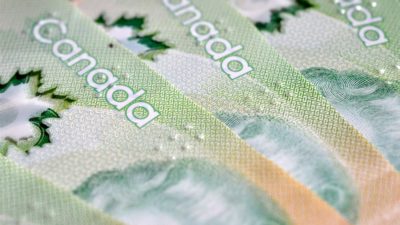Boardwalk REIT (TSX:BEI.UN) is a real estate investment trust (REIT) that owns and operates over 32,000 residential units across more than 200 communities in Alberta, Saskatchewan, Ontario, and Quebec. Boardwalk REIT is vertically integrated with more than 1,500 associates.
Boardwalk REIT aims to provide sustainable monthly distributions and to increase the value of its units via selective acquisitions, dispositions, development, and effective management of its residential multi-family communities.
Boardwalk REIT focuses on quality and customer service that is reflected in its high occupancy level of 97%. However, from a 52-week high of $71, the shares have fallen 25% to $53. According to the company, the share price is misaligned with the underlying value of the trust.
How cheap are the shares?
Based on the net asset value on June 30, 2015, the shares are worth $68 per share, excluding cash on hand. That implies the shares are discounted by 22%.
In the past decade, Boardwalk REIT has traded above a multiple of 17 most of the time, and it currently trades around a multiple of 15. So, the historical trading multiple implies the shares have a 14.5% margin of safety.
In fact, Boardwalk REIT has the approval to make a normal-course issuer bid to purchase up to a maximum of about 10% of the public float for cancellation. The normal-course issuer bid is an effective use of its capital and an indicator that Boardwalk REIT believes its shares are undervalued.
The normal-course issuer bid began on July 3, 2015, at which time the shares traded roughly around $56.8.
So, no matter which perspective we use to look at Boardwalk REIT, its shares are undervalued today.
Is its distribution safe?
Boardwalk REIT yields 3.8% at about $53 per share. In the second quarter of 2015, its payout ratio was under 60%, so there’s a big margin of safety for its monthly distribution. Additionally, it maintained an occupancy level above 97%. So, its distribution remains solid.
It has maintained its distribution since 2010 and even increased it by 13.3% over that period. Occasionally, Boardwalk REIT may pay out a special distribution due to sales of properties. For example, in 2014 it paid a special distribution of $1.40 per share. Compare that to the regular annual payout of $2.04.
In conclusion
Boardwalk REIT is a conservatively run REIT that focuses on quality and customer service. It is priced at a 22% discount, according to the REIT. With high occupancy levels and a conservative payout ratio, its 3.8% yield is solid. If you’re looking for passive rental income, you can consider Boardwalk REIT for your dividend portfolio.
REITs pay out distributions that are unlike dividends. If you wish to avoid the tax-reporting hassle, you should purchase REITs in a TFSA or an RRSP.







